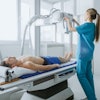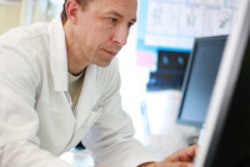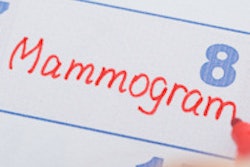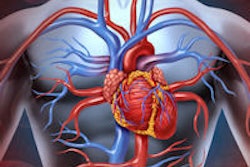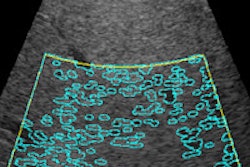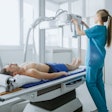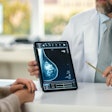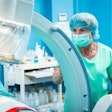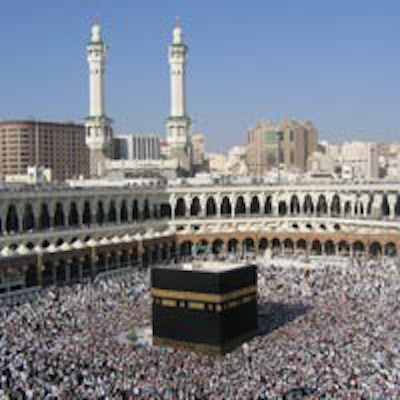
Doctors in Mecca, Saudi Arabia, don't take the massive annual Hajj in their city for granted, according to a report presented at this week's Saudi Heart Association (SHA) annual meeting in Riyadh.
Planning ahead is essential for delivering cardiac services during a large event such as the annual pilgrimage, said Dr. Mohamed Ali Hassan, a cardiologist at King Abdullah Medical City (KAMC). "Our hospital's Hajj Committee works year-round to ensure that we are prepared," he said.
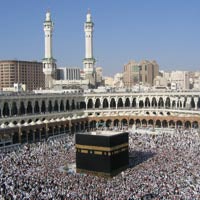 Between 2 million and 4 million people attend the Hajj in Mecca.
Between 2 million and 4 million people attend the Hajj in Mecca.Between 2 million and 4 million people attend the Hajj in Mecca, where medical services are provided free of charge, the hospital noted in a statement. Most visitors who have a cardiac event are older than 65 years; diabetes and hypertension are the most common morbidities. The 2016 event will take place September 21-26.
KAMC's Hajj Committee begins meeting monthly each year at the end of the Hajj and increases the frequency as the event approaches. First, the hospital reviews its performance during the previous Hajj season and looks for areas where it can improve. The Hajj authority and the Saudi Arabia Ministry of Health also contribute to the data each year.
How many people are expected to attend is the most important piece of information. While Hajj visitors come from all over the world, most are from the Indian subcontinent, Hassan said. A good understanding of the visitors' countries helps the hospital to provide for enough interpreters, as language barriers are common, he said. To fill the language gaps, the hospital asks its multilingual employees to step forward and identify the languages they speak. Hajj missions from each country of origin also help with interpretation.
Along with language proficiency, the hospital's IT system needs to be up and ready for the heavy workload, the hospital said. Extra doctors, nurses, cardiotherapy technicians, and IT staff are recruited to work every year, according to the hospital.
The SHA meeting abstract describes the demands on the hospital's echocardiography service, which is central to diagnosing many cardiac conditions. Echo studies performed during the Hajj more than doubled between 2011 and 2015-- to 708 from just 318. The number of echo scanners increased from four to nine, and the number of technicians rose from seven to 13, the hospital said. Of course, the annual Hajj isn't the country's only cardiovascular health challenge.
"Saudi Arabia and most of the Gulf countries continue to experience a high incidence of coronary risk factors, and with the young population there would be a sharp increase of heart attacks in the next decade," said SHA Vice President Dr. Hani Najm. "This calls for a wide and aggressive move to control these risk factors in order to avoid this tidal wave that may outstretch the resources available."


